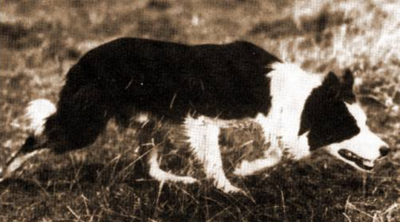
The first recorded sheep dog trials were held in Bala, North Wales in 1873; Thirty three years later, a meeting of English and Scottish sheepmen resulted in the formation of the International Sheep Dog Society. Except for the First and Second World Wars, and during the Foot & Mouth outbreak in 2001, trials have been held each summer in England, Ireland, Scotland and Wales. With over 6,000 members from around the world, participation is robust, and the competition fierce. Over three days, handlers will run 150 dogs over the course. Each handler can enter a maximum of three dogs, but only two of these may run, the third being an ‘alternate’ dog who may be substituted for one of the two. The handler goal is to gain a spot on the National Team to represent their country at the Society’s annual International Trial. Each National Team has 15 places and one reserve place, so competition is especially fierce. Every third year, the Society also organizes a World Sheep Dog Trial.
These days, the International Sheep Dog Society registers over 6,000 Border Collie pups every year. The ISDS number and

Wiston Cap
Certificates it issues are a guarantee of pedigree that most of the dogs it registers have ancestors that can be traced back over 100 years.
One of the most influence dogs ever, however, was born in 1963, a tri-color dog who became the most often used stud dog in the history of the working Border Collie. His name was Wiston Cap, and he went on to win the International in 1965. Before his passing in 1979, he fathered a great many pups who went on to become many of the champions in the seventies and eighties. “Cap” passed along several traits, some good, some not so good, but virtually all working Border Collies used in trials are descended from him, and it is his image that appears on the International Sheep Herding Badge.
A fun factoid: The Society permits the use of only one, simple working name for a registered dog. Working on the fields, often with more than one dog, a shepherd can cope with names such as “Ben”, “Meg”, “Cap” or “Moss.” Names like, “Pretty Boy,” or “Pineapple June,” not so much. Non-English language names are okay, but it is strongly encouraged that the names be a single syllable.
Image of Wiston Cap found on Pinterest and is happily credited upon receipt of information.
